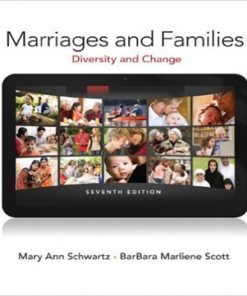Clinical Interviewing 5th Edition By John Sommers – Test Bank
$55.00
Clinical Interviewing 5th Edition By John Sommers – Test Bank
You will receive this product within 24 hours after placing the order
Clinical Interviewing 5th Edition By John Sommers – Test Bank
TEST QUESTIONS FOR CHAPTER 11
INTERVIEWING IN A DIVERSE AND MULTICULTURAL WORLD
1. Which of the following is/are true?
A. All American Indians are highly spiritually oriented.
B. Traditionally, many Indian cultures accorded a great deal of respect to those who gave material possessions to other families and the community.
C. Machismo is a central concept in American Indian culture.
D. A and B are true.
E. None of the above are true.
2. There are approximately ________ tribes represented in the United States.
A. 50
B. 200
C. 500
D. 1,000
E. 2,000
3. Which of the following statements best describes Native Americans’ beliefs about time?
A. They view time in a linear fashion.
B. They are more oriented to the here and now than to the future.
C. They believe it is important to always arrive on time for appointments.
D. Their beliefs about time parallel those of the dominant White culture.
E. Both C and D.
4. When interviewing Native American clients, it may be preferable if the interviewer does which of the following?
A. Asks a lot of questions.
B. Arranges seating to facilitate maximum direct eye contact.
C. Refrains from long periods of silence.
D. All of the above.
E. None of the above.
5. The term invisibility syndrome refers to individuals from which minority group?
A. African American
B. White
C. Hispanic
D. American Indian
E. Asian American
6. If an African American client starts talking in Black English, which the therapist cannot understand, what should the therapist do?
A. Admit that he or she does not understand and ask the client for help.
B. Request that the client uses standard American English so that both parties are on the same wavelength.
C. Continue with the interview normally while trying to understand the Black English as much as possible.
D. Try to understand the client’s language, and after the interview research Black English and try to learn it.
E. Any of the above would be appropriate.
7. African American women have been noted to stay in dysfunctional relationships because:
A. They believe that a woman’s place is in the home.
B. They are often unable to raise children on their own.
C. They do not want to add further distress to the burdened lives of their husbands.
D. They do not want to upset their elders.
E. All of the above.
8. Which of the following is NOT true of fatalism?
A. It is a belief that one cannot do much about one’s fate.
B. It can be counterproductive in counseling.
C. It must be strongly challenged in order for counseling to be effective.
D. It can absolve individuals of blame for traumatic circumstances that are out of their control.
E. All of the above are true.
9. Which culture(s) is/are known for placing great emphasis on interpersonal relationships, closeness, and honest self-disclosure?
A. Asian.
B. Native American.
C. White.
D. Hispanic/Latino.
E. A and B.
10. Members of which of the following groups tend to have the narrowest sense of family?
A. Asian.
B. American Indian.
C. Hispanic.
D. White.
E. African American.
Answers
1. B
2. C
3. B
4. E
5. A
6. A
7. C
8. C
9. D
10. A











Reviews
There are no reviews yet.